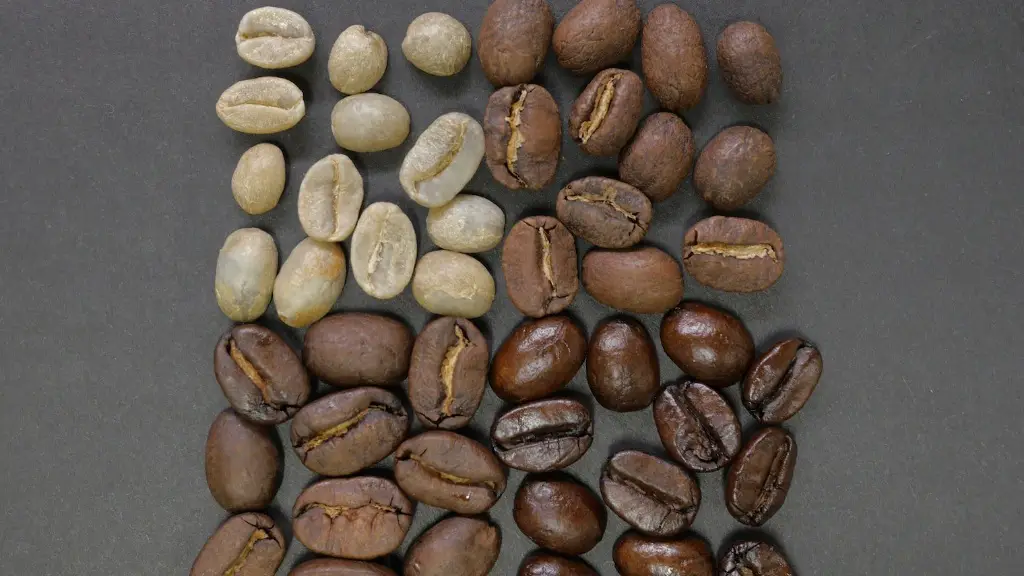Can you drink coffee on the Whole30 diet? Many people wonder if their favorite morning cup of joe is allowed on the Whole30 diet. It turns out coffee on the Whole30 may not be ideal, but it is allowed. How coffee fits into the Whole30 diet really depends on the individual’s current diet, lifestyle, and overall health goals.
Whole30 is a thirty-day elimination-style program focusing on the removal of certain food items that may have a negative effect on the body. This plan was designed to help people find a balanced, sustainable lifestyle. Unprocessed foods that are nutrient-dense are recommended while processed foods, unhealthy fats, added sugars, grains, dairy and legumes are not allowed.
Coffee is made from ground roasted beans and can have many different flavors. It contains caffeine, which acts as a stimulant and can provide increased alertness, improved mood and better concentration. It has also been found to have potential health benefits such as reducing risk of type 2 diabetes and some types of cancer.
On Whole30, coffee is allowed but it is important to pay attention to the ingredients and avoid any added sugar, creamers or artificial sweeteners. Whole30 advocates suggest sticking to black coffee—without any additions—to maintain the benefits of the diet. Coffee can also be used for intermittent fasting when following the Whole30 plan.
What does the science say?
Experts agree that drinking black coffee- without any additives- can be part of a healthy, balanced diet. A 2017 study published in the journal Appetite found that consuming black coffee after meals can help people maintain weight and control their cholesterol levels. A 2018 systematic review of randomized controlled trials concluded that there may be some health benefits associated with consuming black coffee, including improved liver function and reduced risk of stroke.
Another study published in the Journal of the American College of Nutrition found that adding cream, syrup, or artificial sweeteners to coffee can potentially increase your calorie intake and have adverse effects on your health. The study highlighted that black coffee can be part of a reasonable weight loss program as long as it is consumed in moderation and does not replace healthy meals.
How Much?
Most experts recommend about two to four cups of coffee per day. However, it is important to consider individual tolerance. Some individuals may be more sensitive to the effects of caffeine and may need to reduce their consumption. Caffeine can cause dehydration, so it is important to drink enough water throughout the day.
The Whole30 program recommends that individuals drink up to two cups of coffee per day and no more. If you are using a pre-made coffee drink or special supplement, it is important to read the labels to make sure it does not have any added sugar or sweetener.
Alternatives
If you are looking to reduce your caffeine intake, there are several healthy alternatives that can provide the same benefits as coffee. Substitutes such as chicory root tea, matcha, dandelion root tea, and wheatgrass shots are caffeine-free but still provide the same health benefits and antioxidants as coffee. Others may opt for decaffeinated coffee, which can provide some of the same benefits as regular coffee with less of the stimulant effects.
Herbal teas such as chamomile, peppermint, and ginger tea offer the same relaxing and calming effects of coffee without the caffeine. They can also help relax and digestion at the same time. You can also consider using coconut milk in your coffee for a dairy-free alternative or bulletproof coffee with coconut oil and grass-fed butter to get the same energy-boosting effects of coffee.
Conclusion
Coffee is allowed on the Whole30 diet, however, individuals should pay attention to their individual tolerance and the ingredients they add to their coffee. For those looking to reduce their caffeine intake, there are several healthy alternatives that provide the same health benefits. Regardless of what you choose, make sure you are getting enough nutrients in your diet and drinking enough water throughout the day.

